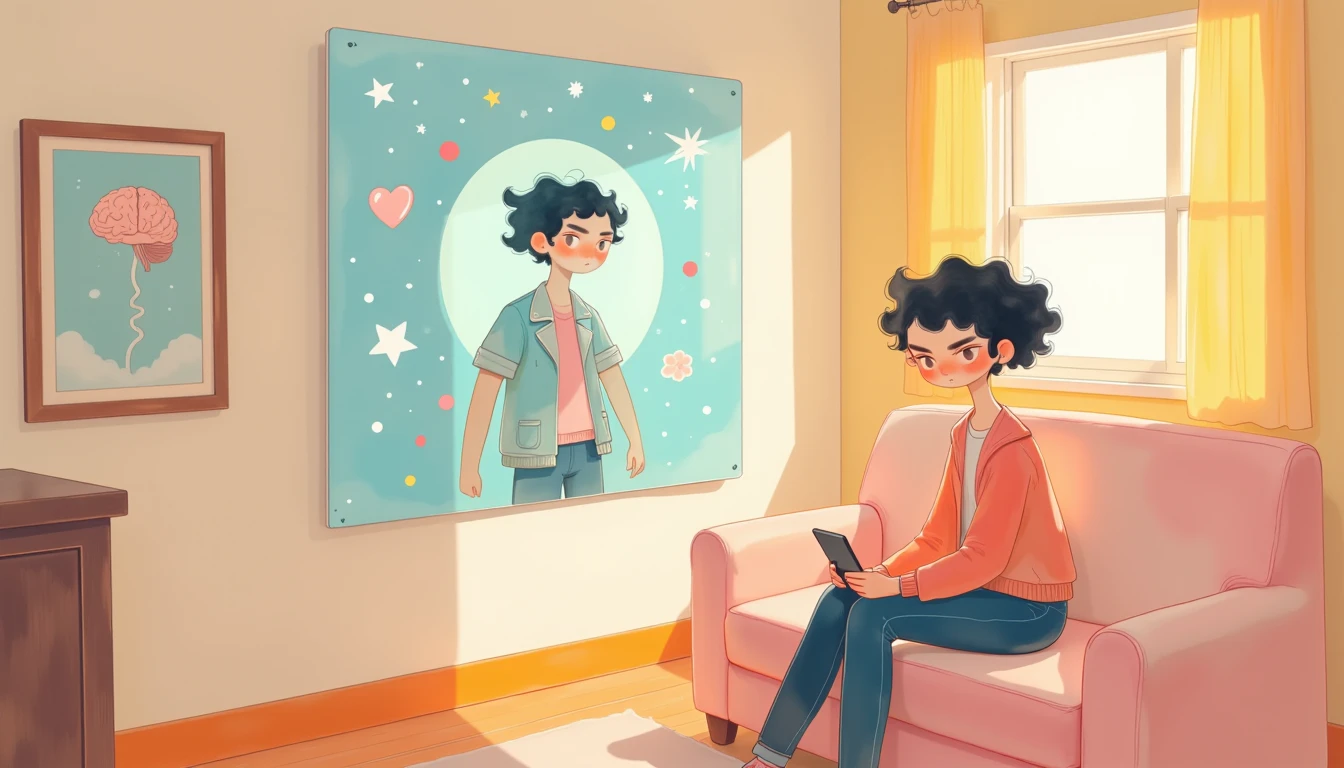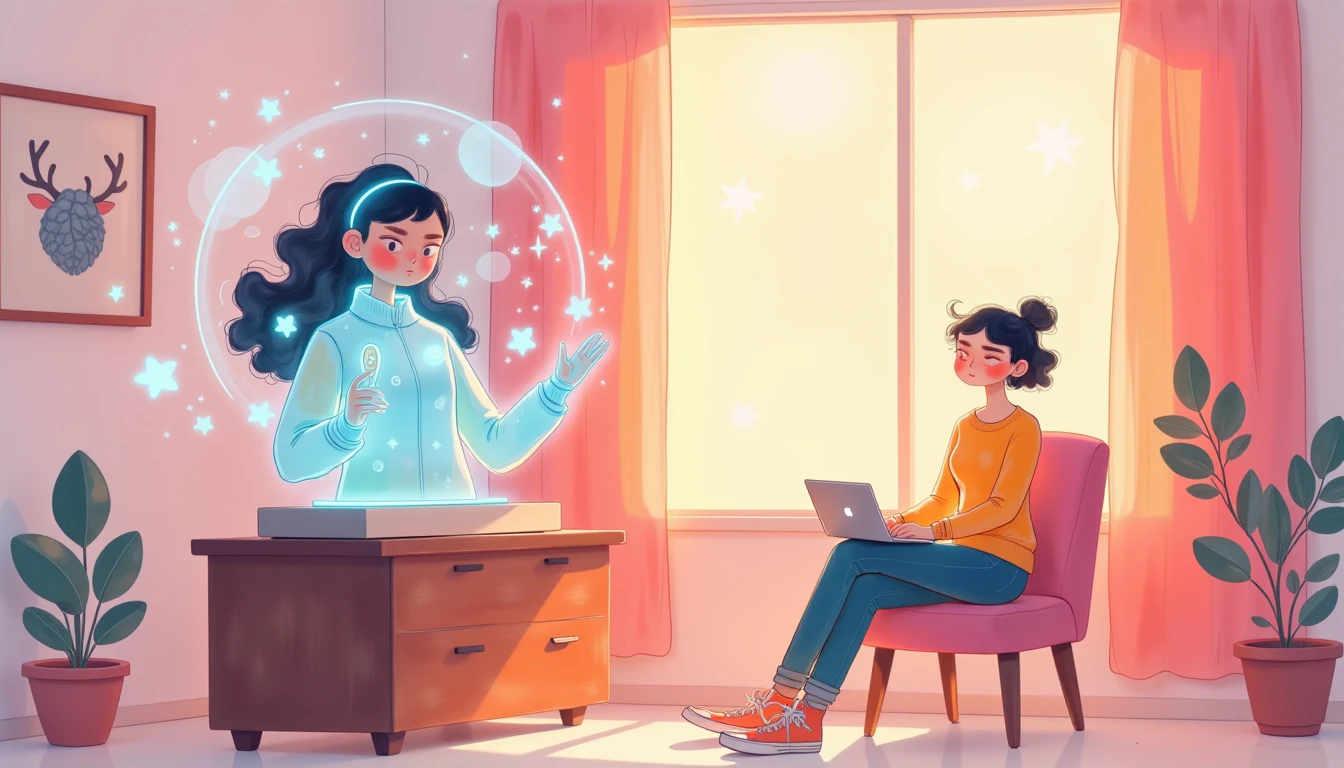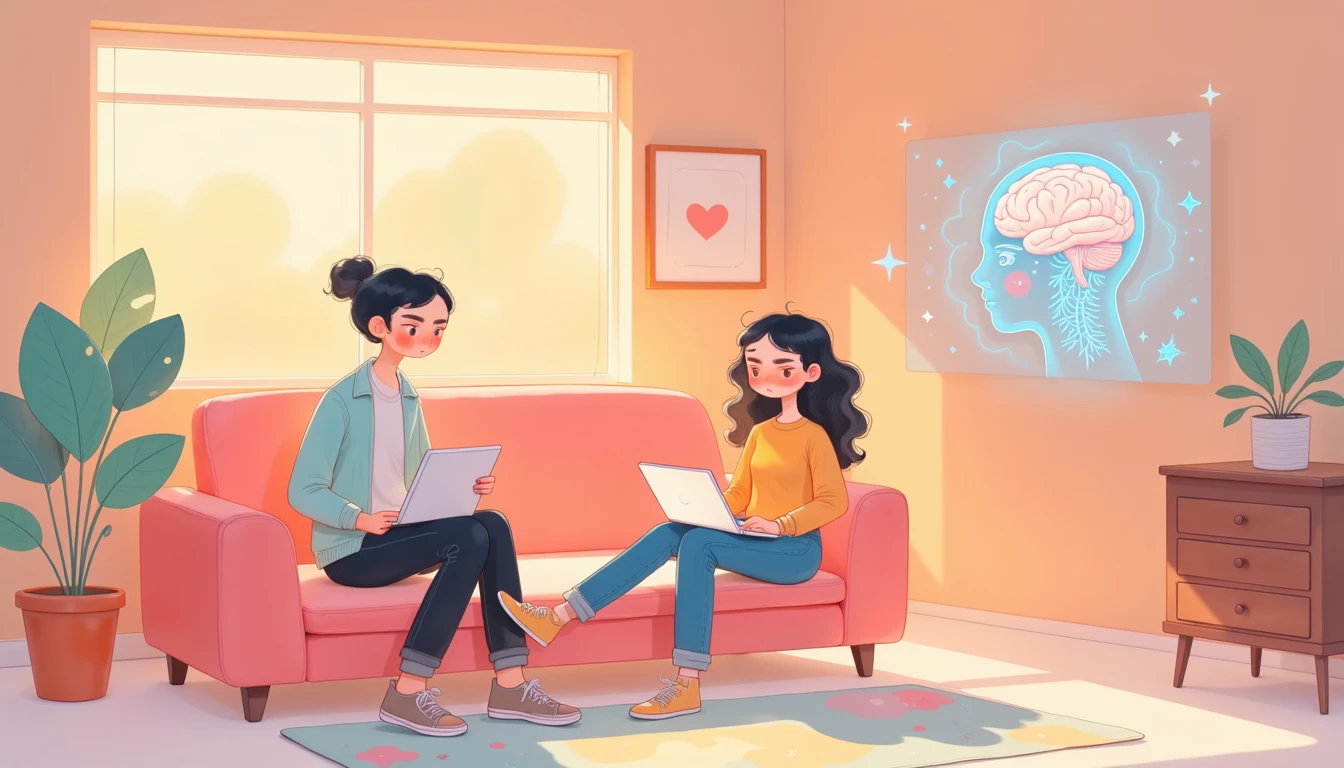How AI Therapists Offer Support for Depression
Depression is a heavy word that carries a lot of weight. It's not just about feeling sad occasionally; it's a deep and persistent feeling that can make even the simplest tasks seem monumental. Seeking help is crucial, but what if traditional therapy isn't accessible to you? That's where AI therapists come into play, offering a bridge to mental health support when human therapists are out of reach. In this post, we'll explore how AI therapists can provide additional support in treating depression, making mental health care more accessible to those in need.
For a broader perspective on AI in mental health care, you might be interested in reading about The Gentle Evolution of AI Therapy and AI Therapy and the Human Connection.

How AI Therapists Offer Support for Depression
The Role of AI in Treating Depression
With the rise of technology, AI has started to weave its way into various aspects of our lives, including mental health care. AI therapists are software programs designed to simulate conversation and provide support to those dealing with mental health issues like depression. But how exactly do they fit into the treatment landscape?
Understanding AI Therapists
An AI therapist is not a replacement for a human therapist but rather an extension of mental health care. Think of it as an additional tool in your mental health toolkit. These programs are designed to listen, learn, and respond in ways that can help you feel heard and supported. They use natural language processing to understand and respond to your needs, making the interaction feel as human as possible.
For a list of AI therapists and mental health apps, you might be interested in reading about the best AI powered mental health companions.
Benefits of AI Therapists
-
Accessibility: One of the most significant advantages of AI therapists is their accessibility. They can be available 24/7, providing immediate support whenever you need it. This can be particularly helpful for those who live in areas with limited access to mental health services or have schedules that make traditional therapy challenging.
-
Affordability: AI therapy can often be more affordable than regular therapy sessions, making mental health care more accessible to those on a tight budget.
-
Anonymity: Sometimes, the fear of stigma or judgment can prevent people from seeking help. AI therapists offer a level of anonymity that can make it easier for people to open up about their feelings.
-
Consistency: An AI therapist can provide a consistent level of support, helping you track your progress over time and offering encouragement and advice based on your interactions.
-
Immediate Feedback and Support: Unlike traditional therapy, where you might have to wait for your next appointment, AI therapists can provide feedback and support at any moment, helping you manage your depression in real-time.

How AI Therapists Offer Support for Depression
How AI Therapists Work
The Technology Behind AI Therapy
AI therapists use machine learning algorithms to understand and respond to human emotions. These algorithms analyze text input to detect emotional cues, allowing the AI to engage in meaningful conversations. Over time, the AI learns from these interactions, becoming more adept at understanding your needs and offering tailored support.
What to Expect from an AI Therapy Session
Engaging with an AI therapist usually starts with a text-based chat. You'll be prompted to share your feelings or describe your current state of mind. The AI will respond with questions or supportive statements designed to help you explore your emotions and find ways to cope. It might suggest breathing exercises, journaling prompts, or other techniques to help manage your depression.
While the interaction might not feel as nuanced as a conversation with a human therapist, many users find it surprisingly comforting and effective.
The Human Element: Why AI Can't Replace Traditional Therapy
While AI therapists offer many benefits, it's essential to recognize their limitations. Human therapists bring empathy, intuition, and deep understanding that AI cannot replicate. A human therapist can read between the lines, picking up on non-verbal cues and offering insights that an AI might miss.
AI therapists should be seen as a complement to traditional therapy, not a substitute. For those with severe depression or complex mental health needs, human intervention remains crucial. However, AI can still play a significant role in providing support between sessions or for those who are waiting to see a therapist.
When to Seek Human Help
If you find that your depression is worsening or if you're experiencing thoughts of self-harm or suicide, it's vital to reach out for human help immediately. AI therapists are not equipped to handle emergencies, and human support is essential in these situations.

How AI Therapists Offer Support for Depression
Making the Most of AI Therapy
If you're considering using an AI therapist, here are some tips to make the most of the experience:
-
Set Realistic Expectations: Remember that AI is a tool. It can offer support and guidance but isn't a replacement for human interaction.
-
Use It Regularly: Like any form of therapy, consistency is key. Make it a habit to check in with your AI therapist regularly to get the most benefit.
-
Combine with Other Resources: AI therapy works best when combined with other forms of support, such as in-person therapy, medication, or support groups.
-
Be Honest: The more honest you are in your interactions, the more helpful the AI can be. Don't be afraid to share your true feelings and thoughts.
-
Stay Open to Feedback: AI therapists often provide feedback or suggestions. Stay open to these as they might offer new ways to manage your depression.
Conclusion
AI therapists represent a promising step forward in making mental health care more accessible and available. While they can't replace the human touch that traditional therapists provide, they offer a valuable alternative for those who need immediate, affordable, and anonymous support. By combining AI therapy with traditional methods, individuals struggling with depression can find the comprehensive care they need to manage their mental health more effectively.
Remember, seeking help is a sign of strength. Whether through a human or AI therapist, taking steps to address your mental health is always a positive move forward.
For a broader perspective on AI in mental health care, you might be interested in reading about The Gentle Evolution of AI Therapy and AI Therapy and the Human Connection.
Are you interested in learning programs and a personal AI companion to talk to? Try out MindLumen AI to improve your mental wellbeing with AI therapy and companionship. You can try it out for free.
Get started with MindLumen


